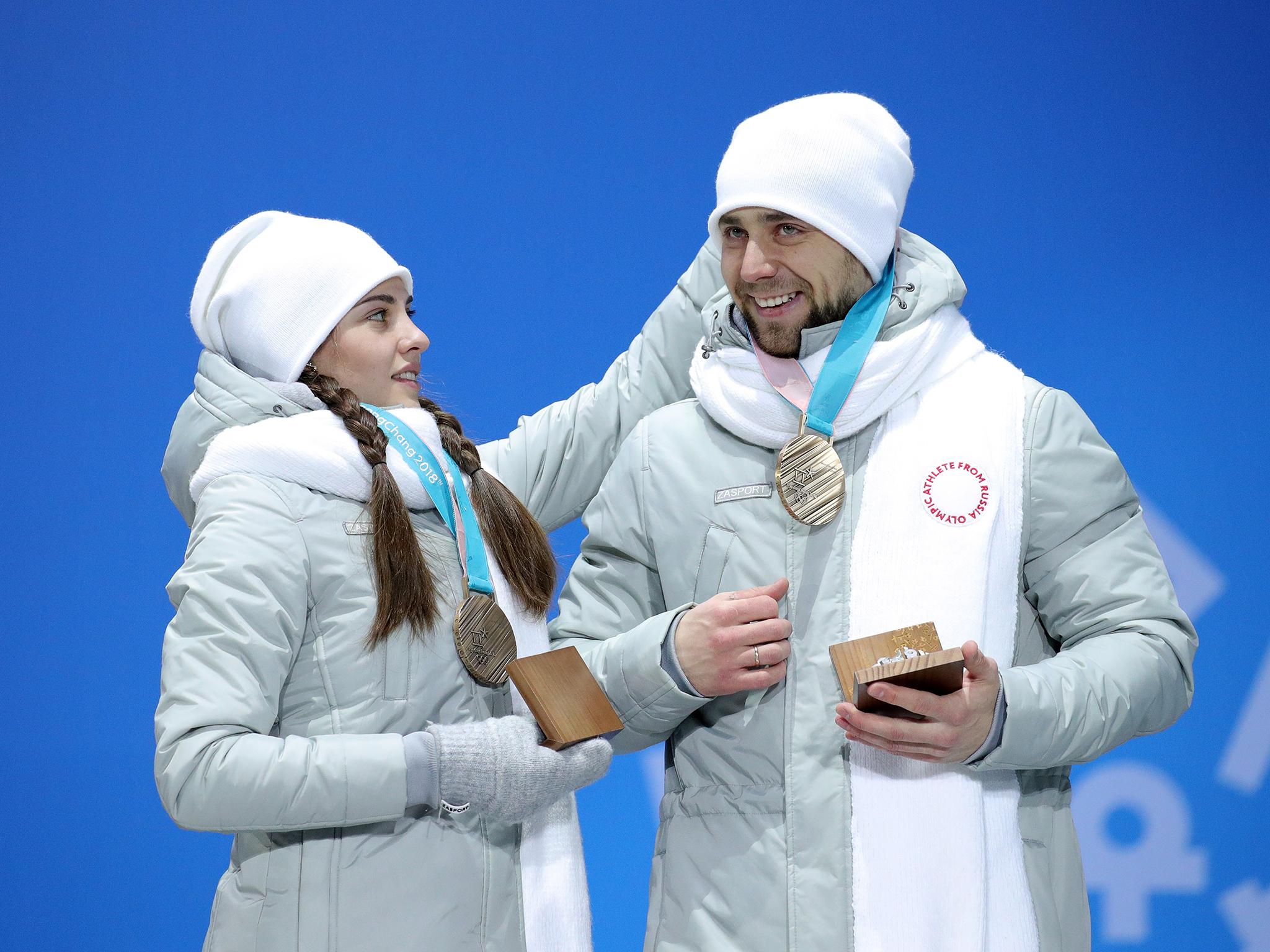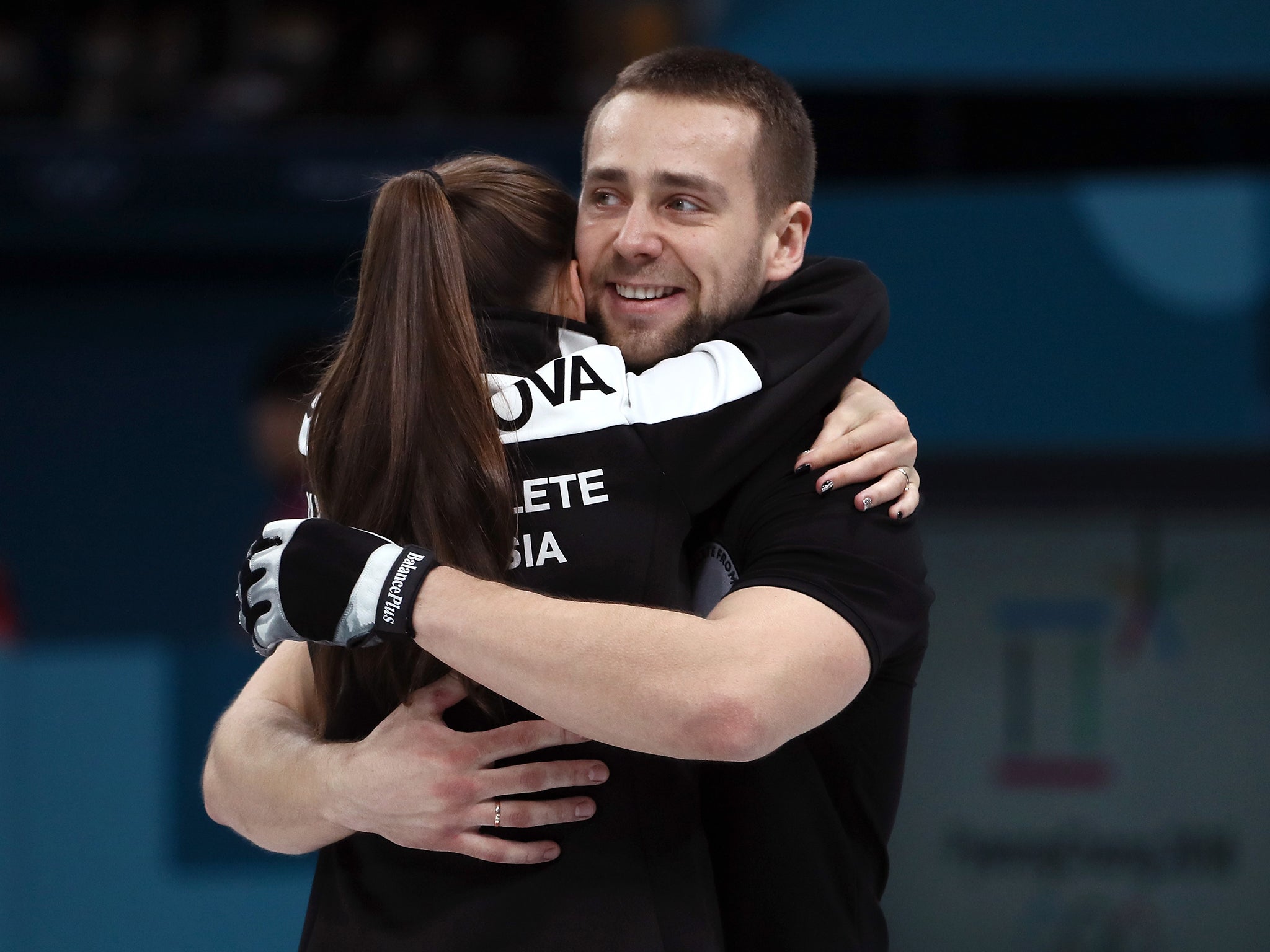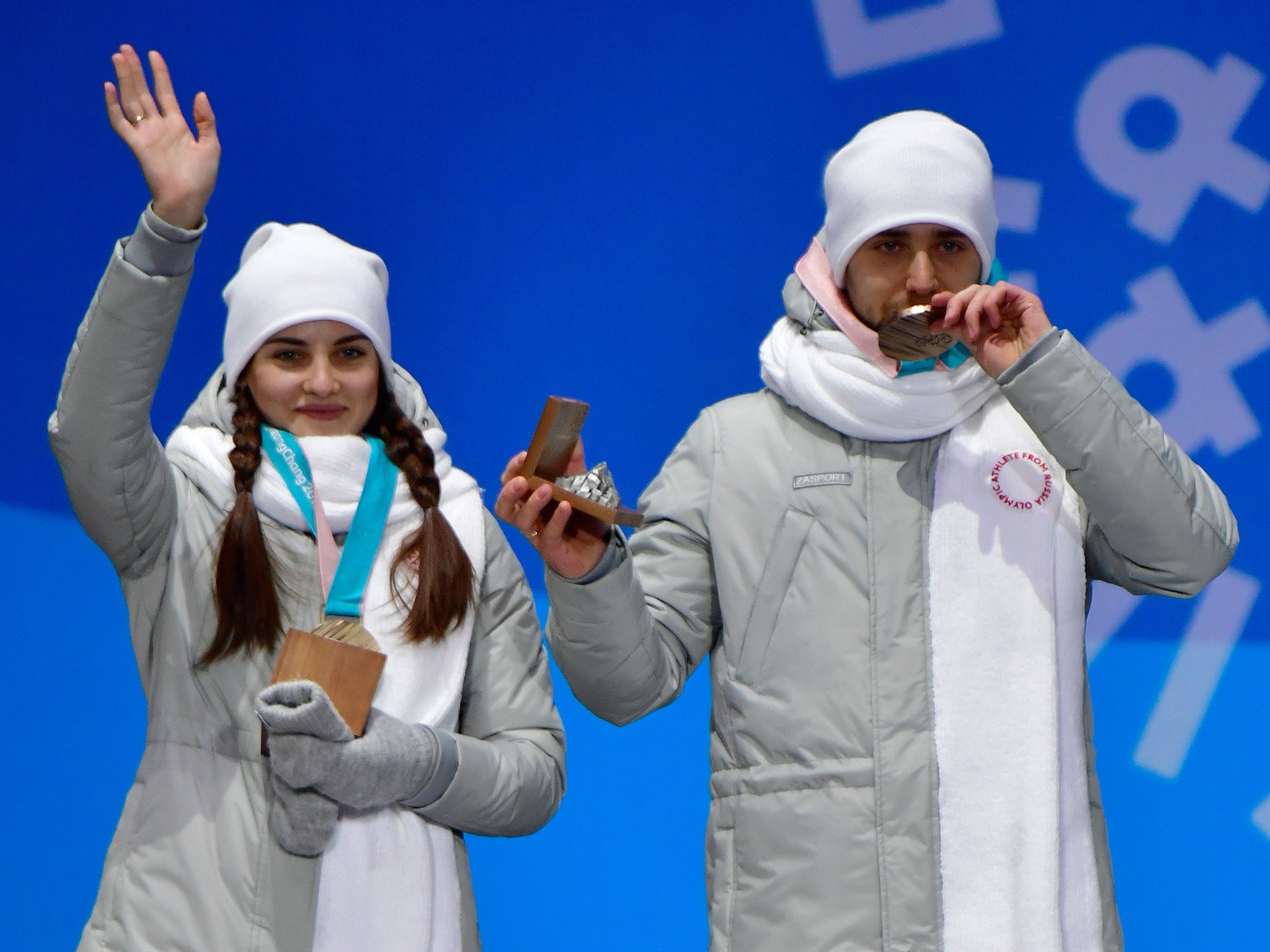Winter Olympics 2018: Russian husband and wife stripped of bronze medal after he fails ‘unexplainable’ doping test
Alexander Krushelnitsky and Anastasia Bryzgalova will lose their Olympic bronze medals after the former tested positive for Meldonium, but he believes his drink has been spiked by a teammate

Your support helps us to tell the story
From reproductive rights to climate change to Big Tech, The Independent is on the ground when the story is developing. Whether it's investigating the financials of Elon Musk's pro-Trump PAC or producing our latest documentary, 'The A Word', which shines a light on the American women fighting for reproductive rights, we know how important it is to parse out the facts from the messaging.
At such a critical moment in US history, we need reporters on the ground. Your donation allows us to keep sending journalists to speak to both sides of the story.
The Independent is trusted by Americans across the entire political spectrum. And unlike many other quality news outlets, we choose not to lock Americans out of our reporting and analysis with paywalls. We believe quality journalism should be available to everyone, paid for by those who can afford it.
Your support makes all the difference.Russian curler Alexander Krushelnitsky’s B sample has tested positive for the banned substance Meldonium, the Olympic Athletes of Russia [OAR] have announced, but a criminal investigation has been launched in an attempt to discover how the drug entered his body.
The Court of Arbitration for Sport’s [Cas] anti-doping division [ADD] begun proceedings against Krushelnitsky on Monday after he tested positive for the banned substance Meldonium, a drug commonly used on Eastern Europe to treat heart and cardiovascular diseases, which also has performance-enhancing effects on endurance.
As a result of the B sample confirmation, Krushelnitsky and his partner, wife Anastasia Bryzgalova, will be stripped of the bronze medal that they won in the mixed doubles curling event last week, with the Norwegian pairing of Magnus Nedregotten and Kristin Skaslien inheriting third place.
After Krushelnitsky’s B sample was analysed on Monday, the OAR delegation issued a statement to confirm the positive test, but have cast doubt on whether the athlete took the drug knowingly after he was unable to explain how it entered his system.
Krushelnitsky has issued a statement regarding the positive test, and it is understood that he has told Russian officials that he fears a teammate who was not selected for the 2018 Winter Olympics may have spiked his drink during a pre-Games training camp.
“First of all, I want to apologise to my partners on the Olympic team, our delegation and all the fans for not being able to project ourselves and Anastasia from the problems that we faced today,” Krushelnitsky told insidethegames.
“I’m very sorry that the historical victory of Russian curling has now become the subject of a doping scandal, which is doing immense harm to our sport and to all Russian sports in general.
“At the same time, I am ready to openly state that I have never, never during the time that I practice sport, used forbidden drugs and any other dishonest ways of competing.
“I am absolutely against doping and I have always tried to follow all anti-doping rules as closely as possible.
“My positive test for Meldonium in this regard was for me and for Anastasia not just a shock, this is a huge blow both to our reputation and career.
“Not to mention that only people completely devoid of common sense can use any kind of doping, and even more so Meldonium, on the eve of the Olympic Games, where testing is at the highest level.
“That’s why I, more than anyone else, am interested in conducting an early investigation to find out the reasons of what happened.”

Confirming that a criminal investigation was underway, the OAR statement added that “the circumstances of the case do not provide any answers to the questions as to how and when Meldonium could have gotten into the athlete’s body”.
The reason for the investigation is due to Krushelnitsky providing a ‘clean’ sample on 22 January – two weeks before the 2018 Winter Olympics started – and the fact that Meldonium needs to be taken over a prolonged period of time in order to take effect suggests that Krushelnitsky may have only had Meldonium in his system on just one occasion.
“According to the unbiased results of laboratory analysis of Alexander Krushelnitsky’s samples detected concentration of the substance can be indicative of taking it once, which is not applied in medical practice and is absolutely useless and ineffective in the context of enhancing physical performance or sports results,” the statement added.
“No evidence of the systematic usage of Meldonium is available in this particular case.
“Therefore, the ROC has initiated a comprehensive investigation of the circumstances which also includes the criminal investigation under the RF (Russian Federation) criminal law to establish the facts of the case in detail.”

The incident is particularly embarrassing for Russia given that its Olympic Association is attempting to rebuild its reputation following the International Olympic Committee-enforced ban on their participation in Pyeongchang due to systemic doping offences. The IOC is considering lifting Russia’s ban at the end of the Games and allowing the 168 athletes – minus Krushelnitsky – to march under the Russian flag at the closing ceremony this weekend.
Meldonium was banned by the World Anti-Doping Agency [Wada] at the start of 2016, with its most high-profile case involving Russian tennis player Maria Sharapova, who served a 15-month ban from the sport after she did not know it had been outlawed in the new regulations. Sharapova claimed that she had taken prescription Meldonium for 10 years due to a heart defect.

Join our commenting forum
Join thought-provoking conversations, follow other Independent readers and see their replies
Comments